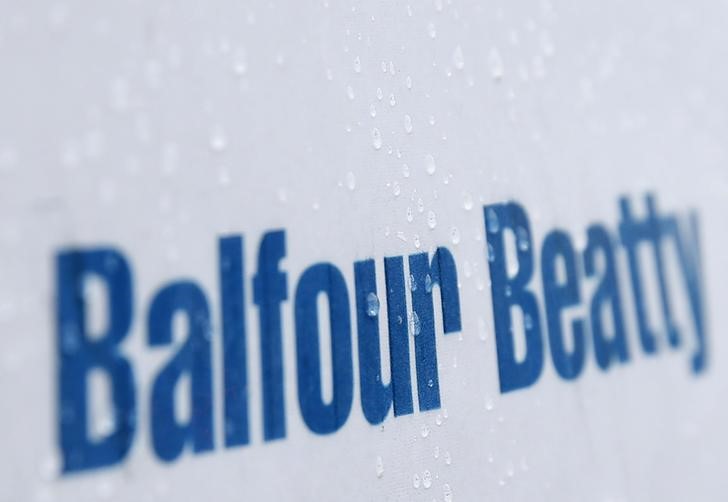By Li-mei Hoang
LONDON (Reuters) - British infrastructure group Balfour Beatty (L:BALF) scrapped its dividend after suffering a loss of 59 million pounds in 2014 and said it faced major challenges from domestic construction contracts.
The company planned to work through the "severe legacy" of troubled building projects over the next two years, newly appointed Chief Executive Leo Quinn said on Wednesday. Shares rose as the market welcomed signs that the company was tackling its problems.
Hit by wafer-thin margins during the recession, Balfour issued five profit warnings within two years, cancelled a 200 million pound share buyback and put its dividend under review in January.
It aims to deliver 200 million pounds of cash flow improvement and 100 million in cost savings compared to 2014, said Quinn, who took over at the start of the year. He also suspended the final dividend until March 2016.
"It is a prudent decision to think about suspending the dividend in order to make sure that we have got balance sheet strength during this uncertain period," Quinn told Reuters.
Despite the decision to cancel the dividend, shares in the company were up 6.5 percent by 0915 GMT, making it one the biggest gainers on the FTSE 250 (FTMC) index.
"We see significant upside potential as management actions take effect to place a positive value on UK construction progressively, while valuation on the rest of the group is also likely to increase over this period," said Numis Securities analyst Howard Seymour.
Quinn said he would not extend KPMG's review of its UK construction business to the rest of the company, but he was looking to complete a separate review of the group by September.
"In actually looking at the rest of the organisation, we'll be inspecting and checking all contracts but I don't believe there is the need or any signs that we would do a deep dive audit at this time," he said.
The company reported an additional 118 million pound write-down in its UK construction contracts, bringing the total losses in the division to nearly 300 million.
Shares in Balfour, which employs around 36,000 people in about 80 countries, lost 26 percent of their value last year, making the company vulnerable to circling predators.

Rival Carillion (L:CLLN) made three unsolicited bids in July, each of which was snubbed.